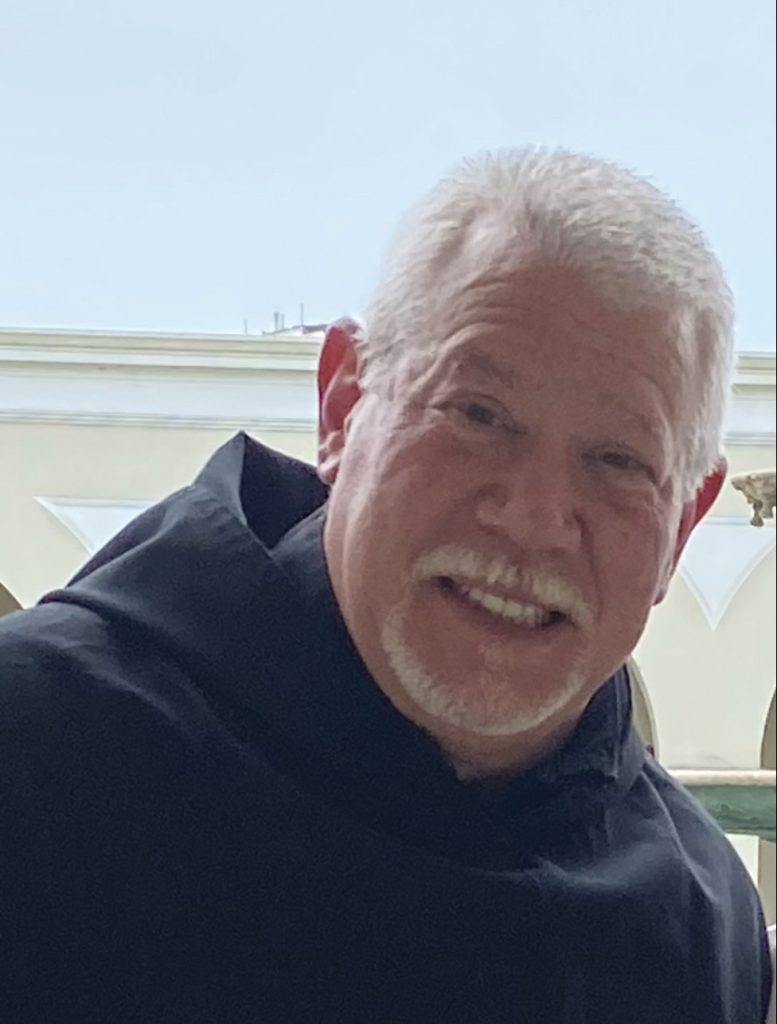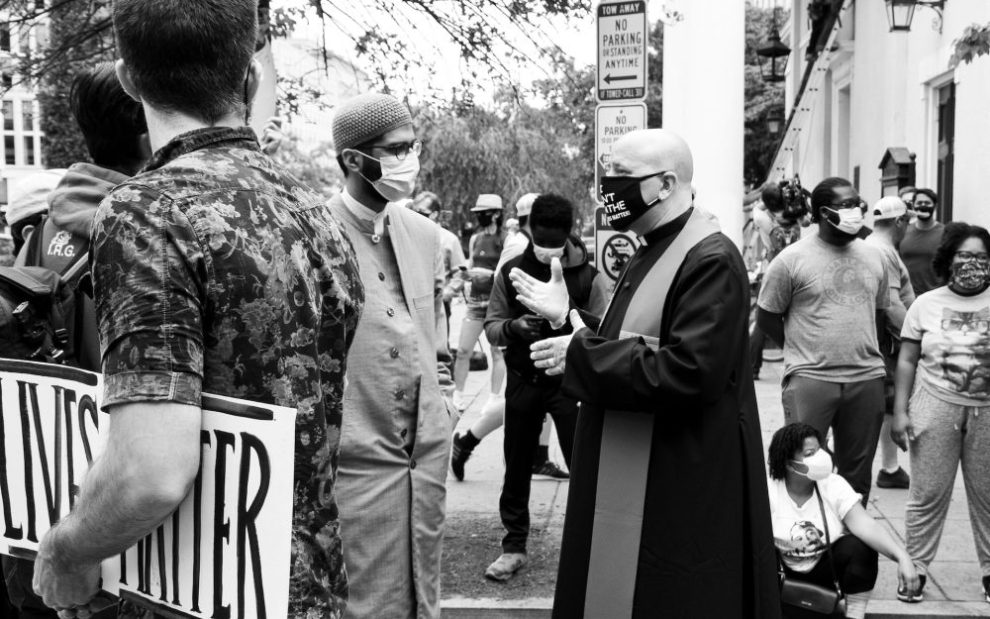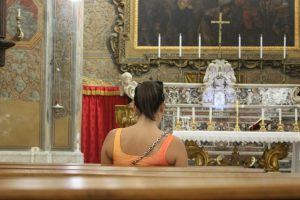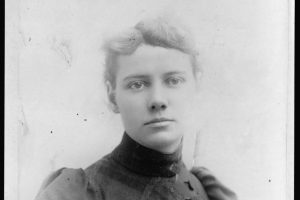Although vocations to the priesthood continue to decline in the Catholic Church, Augustinian Father Anthony Pizzo balks at referring to this phenomenon as the “vocations crisis.” “I’m a realist with a bent toward optimism,” Pizzo says.

Throughout his nearly 40 years as a priest, Pizzo, who was recently elected to a second term as the prior provincial of the Midwest Province of the Augustinian Order, has had plenty of experience in taking not only a hands-on, pragmatic approach to the priesthood, but also in stepping outside of long-drawn boundaries. Upon returning to his native Chicago in the 1990s, he became heavily involved with local community organizing, working with organizations such as the Southwest Organizing Project to address racial and economic injustice, issues of immigration, fair housing, health care access, and neighborhood violence.
Pizzo sees the role of the priest as being far more than a simple celebrator of the sacraments, but rather as an integral part of bringing justice and the church’s mission to the streets. And for those discerning the priesthood, he sees a willingness to embrace this role of service as crucial. “I cannot see myself, nor can I define pastoral ministry, without it being somehow involved in the life of the community and organizing to address whatever threatens our common good, stability, and peace,” he says.
What makes a person a good priest?
Augustinians follow what I consider to be a very beautiful and yet simple spirituality: It’s all about being relational. When you read St. Augustine’s rule of life and his Confessions, he is always in relation with the other. When he seeks to understand God in his life, it’s always about looking beyond himself, even though he ultimately had to look within himself to see that God has been there the whole time. This is reflective of our nature as human beings: If we’re created in the image and likeness of God, we’re going to reflect God’s nature.
What is the nature of God? It’s not only our intelligence and the ability to reason—our ultimate nature is about being relational. That to me reflects what it means to be religious in the church. If the priest is seen as a shepherd, as Pope Francis continues to emphasize, then we cannot help but somehow be in relation with something else. A shepherd with his flock, to use that metaphor, is walking with and accompanying God’s people.
So what makes a good priest? I’d like to think I’m a good priest, but I’m a wounded priest. For me, being a good priest means recognizing that I’m very much a human being, and I bring my humanity into my priesthood. My challenge is to integrate the ideal of priesthood, which is to reflect the image of Christ, while somehow coming to terms with my own limitations and my woundedness. This is the work of grace.
What goes into forming a priest who can achieve this kind of integration?
First of all, those discerning the priesthood have to develop a deep and abiding practice of prayer, and this is not something separate from everything else. Coming to terms with my own humanity and my own limitations within the context of being called to be a public figure in the church and to walk with God’s people is all part of what it means to be in communication with God.
Importantly, there needs to be both individual and communal prayer. For religious, we live in community, and we pray together. But we also pray privately; each of us cultivates a relationship with God and finds that grace that continues to compel us and move us beyond ourselves, our own ego, our own desires. It helps us recognize that we’re here to share ourselves in the midst of others who are searching for meaning in their lives. The ultimate adventure in our life is the search for God.
It’s not always easy. It’s at times very challenging, because we bring our own individuality into the mix, but we’re all works in process. I always say, “Once in formation, always in formation,” because that opens a door and holds us accountable for pursuing our own personal development and recognizing we’re not here just for ourselves. We’re here to share with other people, for the sake of the common good.
Besides that, the curriculum of priestly ministry needs to create space and time to be integrative. It’s not just about theory, and it’s not just about praxis. You have to combine these two pieces together in order to form a priest who has not only acquired the knowledge and learned to appreciate and love the Word, but can also bring it from being a spoken word to an active word. That takes time, energy, intelligence, and heart. Being a man of prayer is foundational, but we also have to move beyond ourselves.
Being a priest these days is very, very challenging. It’s not about the privilege and the honor of having a title—titles, as far as I’m concerned, should never be the motive. It’s about being willing to step beyond ourselves, to move outside of our comfortable space because that’s what Christ did.
What responsibility does a priest have toward their community?
I’m not just here to celebrate the sacramental life of the church. Those are important moments of convocation that bring people together, but priests are not confined only to those moments of sacramental convocation. We move beyond them as well.
The parish is beyond the four walls of the church. The parish is out there as well. We may have canonical boundaries to a parish, but that shouldn’t confine us from reaching out. As a parish priest, it’s my responsibility to recognize that everyone has their own story, and whether they actively reach out to the church or not, I have a responsibility to reach out to them.
As Pope Francis continues to emphasize, go out to the people! Don’t sit back and wait for them to come to you. That’s evangelism—that’s what Christ did. These are Gospel moments. When you read the Gospels for instance, Christ goes out to the people and feeds them the Gospel.
Being a priest is not just about sitting in my office and waiting for people to show up at the office door. It’s literally moving beyond my own limitations, and that means moving beyond my own space and time.
Has this understanding of priesthood affected the community organizing you’ve done throughout your life?
In the 1990s I was assigned back in Chicago after two stints in both Michigan and Wisconsin as a parochial vicar. Years ago, I considered being a missionary in a foreign country, but I realized—once I came back to Chicago in an area of the city that was going through major demographic transition—that I had found myself in mission territory. The interesting dynamic is that I wasn’t only thinking of lending myself out to mission work in this part of Chicago but also that the local community, more specifically the immigrant community, was reaching out to me and being missionaries to me.
That created a whole different perspective for me on pastoral ministry: It’s about reaching out, accepting, and welcoming in spite of the fact that at times I didn’t understand what was going on. I was going through a transition without realizing I was.
In the meantime, there were issues arising because of changes in the local neighborhood. The median income was lowering. There was a lot of flight out of the neighborhood because of the cultural and racial transition. But I committed myself to walk with folks toward articulating a new identity.
We had an issue with street gangs, so safety in the neighborhood was threatened. I realized that people were living in fear, so I began to seek advice from people in the neighborhood, especially from those whom I considered to be organizers themselves without belonging to an organization. One thing led to another, and eventually several of us, both lay folk and a few clergy, were getting together to talk about all of this. What came up was that we should consider community organizing: forming a local community organization whereby we move out into the neighborhood, visit people in their space, engage them in conversations, get their stories, and get to know what their needs are. Ultimately, those needs were about living with some kind of stability in peace with one another.
That’s what propelled me into community organizing and investing myself and my community in addressing these issues and working together for the common good. All of that was new to me. It was the first time I realized that, wow, I don’t have to be confined to the four walls of the church building. I can literally walk out the doors, and I’m going to be in the middle of my neighborhood.
People need to see that. They need to know that the church is smack in the middle of all of this. And it can’t just be the building. They need to see the church taking Catholic social teaching, for instance, and making it real by incarnating it in the neighborhood.
This is kind of what the gospels are saying, right? Jesus brought a new way of thinking to people in helping them realize that God has been there the whole time. He gives us the opportunity to recognize him in one another and in the good that we do and that we are—even the gang members.
I was actually angry at first because there was so much instability with graffiti and shootings and all that. But when I began to reach out to these kids, I realized they’re someone’s son. They’re someone’s brother. They’re a neighbor, really. They need to be in relationship with that which is good and life-giving and know that they can be part of another larger family. I began to truly love these guys. That converted me and helped me realize that Christ can manifest himself in anybody, regardless of our circumstances.
That’s just an example of the many issues that we had to deal with in our neighborhood through community organizing. And it made a tremendous difference. I cannot see myself, nor can I define pastoral ministry, without it being somehow involved in the life of the community and organizing with one another to address whatever it is that threatens our common good, our stability, our peace.
What does pastoral ministry look like for someone ministering in a community where these clear threats to the common good you’re describing aren’t really an issue?
I’ve thought about that a lot. What would I do if I was ever assigned to a economically stable community? First of all, preaching—bringing in Catholic social teaching and raising awareness of communities, even if they aren’t in a destabilizing situation—doesn’t exonerate pastors from reaching out or doing something. Perhaps priests in these situations are called to utilize their own resources to help stabilize an unstable situation elsewhere. What priests have acquired and accumulated is not ours; it belongs to everybody.
I can see using the same principle of poverty in my religious life as an Augustinian priest and applying it to the local faith community. I might say, “Folks, what we have is wonderful, beautiful, and a gift of God, but it doesn’t just belong to us. The church is bigger than us. This is Christ’s church, and Christ always reached out to the poor.” Imagine the giftedness if a local faith community of means could identify with being the collective Christ.
It wouldn’t just be asking people to dig deep into their pockets. That would be part of it, but it would also involve asking people to move beyond their comfort zone and say, “Hey, look, I’m going to volunteer in a situation where there is a need.” Comfort is not a bad thing, but complacency is. Complacency can lead us to apathy, and that is very dangerous ground.
What do you think is behind the “crisis” in priestly vocations? Are there simply not enough men who want to take on this role?
I think about this quite a bit. The Augustinians have a good vocation ministry in our province. We seemingly have done well insofar as outreach. We have several discerners, believe it or not, but not everybody is called. And there’s a vetting process that will determine whether or not somebody can even apply, let alone move on to the next levels of formation. It takes a lot of discernment, not only on the part of the discerner, but also on the part of the vocation ministry directors and leadership in a particular religious order or diocese.
Religious have to keep our eyes, ears, and heart open and listening very carefully, because this cannot fall into an issue of quantity. It’s got to be an issue of quality, but for many of us American types, more is better. That may be in some cases, but not when it comes to vocations to the church. Granted, we’d love to have 25 guys waiting in the wings who are all of great quality. If we can do that, that’s the gift of the Spirit. But I’m just not very optimistic we’re going to wind up with that many at any given time.
People use the word crisis, and I get it. I’ve used it sometimes, too. But I look at it as being an opportunity for us to move beyond some of the boundaries we put up. It’s an opportunity for us to think outside the box.
Is all of the work that the church does only confined to the priest? No. We’ve been discovering that over the past 50 years since the Second Vatican Council. The post-Vatican II times have been screaming at us saying, “Sorry, but the church is not the clergy. The church is the people of God.”
As Pope Francis would say, and I know we might get a little tired of this proverbial expression, the priests are the ones who smell like the sheep. We walk with the people of God, and we share responsibility more and more with the people of God. We delegate more and more, so we create an atmosphere or a culture of collaboration. This is what gives us the opportunity within this question of vocations to the priesthood to say, “Hey, not all are called. Few are chosen.” It’s right there in scripture.
The church was so used to a particular point in time before and during Vatican II when vocations were way up. Things changed, and some people say it was because of Vatican II. I say it was the Holy Spirit who changed us, who transformed us, and who said, “If we’re going to refer to the church as the people of God, then let’s put the focus on the people of God.”
When it comes to those who are discerning the priesthood, what signs might you look for in someone to determine if this vocation is a good fit?
I would say, first of all, is the guy a man of prayer? But also, what are the fruits of that prayer? What comes out of it for him? Is it drawing him beyond himself? He may appreciate his religious faith, be devotional, and like to be of service, and those all would be somewhat foundational. But it can’t just be that. There’s got to be an inclination to move beyond oneself.
I believe spiritual direction must be part of the continuous formation of priests and religious. This is a helpful vehicle toward self-awareness reminding the priest that we are both gifted and wounded and always in need of God’s Mercy. We become, then, “mercy-bearers” on behalf of Christ.
If a man feels he wants to be of service, is he somewhat humble? Humility has got to be part of this. Can he at some level identify with Jesus? Can the guy listen without imposing his comments? Is he willing to let go? If I were to just put it succinctly, the question is whether this person displays a sincerity and an authenticity of loving God and loving other people without judgement. I think this is a good measuring tool when it comes to initial contact with inquirers and discerners.
What might be a sign that the priesthood definitely isn’t for you?
One sign might be if a discerner is having a very difficult time with the idea of having to give up his autonomy. Now that doesn’t mean he’s giving up his individuality, but he is definitely giving up some autonomy, because a priest is available. A priest is a servant. He’s there to listen and to respond. I would love to call us first responders, but I don’t think collectively we are all the time. You don’t have a family per se, but you have a parish family that has a lot of needs. Are you willing to give up your own at times to respond to those who are definitely in need?
Another concern is relationships: How does the priest cultivate relationships within respectful boundaries? All the more reason why the Church, as a wounded institution, must continue to heal the wounds of those who have suffered the trauma of abuse.
When we are willing to face our limitations, that opens up a door for us to be able to identify with wounded humanity. This can lead us to another level of self-awareness by holding ourselves and one another accountable. Grace and Mercy are operative here.
I believe discerners, if they have that ability, have the potential to become priests and religious that will serve Church well.
This article also appears in the August 2023 issue of U.S. Catholic (Vol. 88, No. 8, pages 16-20). Click here to subscribe to the magazine.
Image: Unsplash/Koshu Konii
Headshot courtesy of Fr. Anthony Pizzo, O.S.A.














Add comment